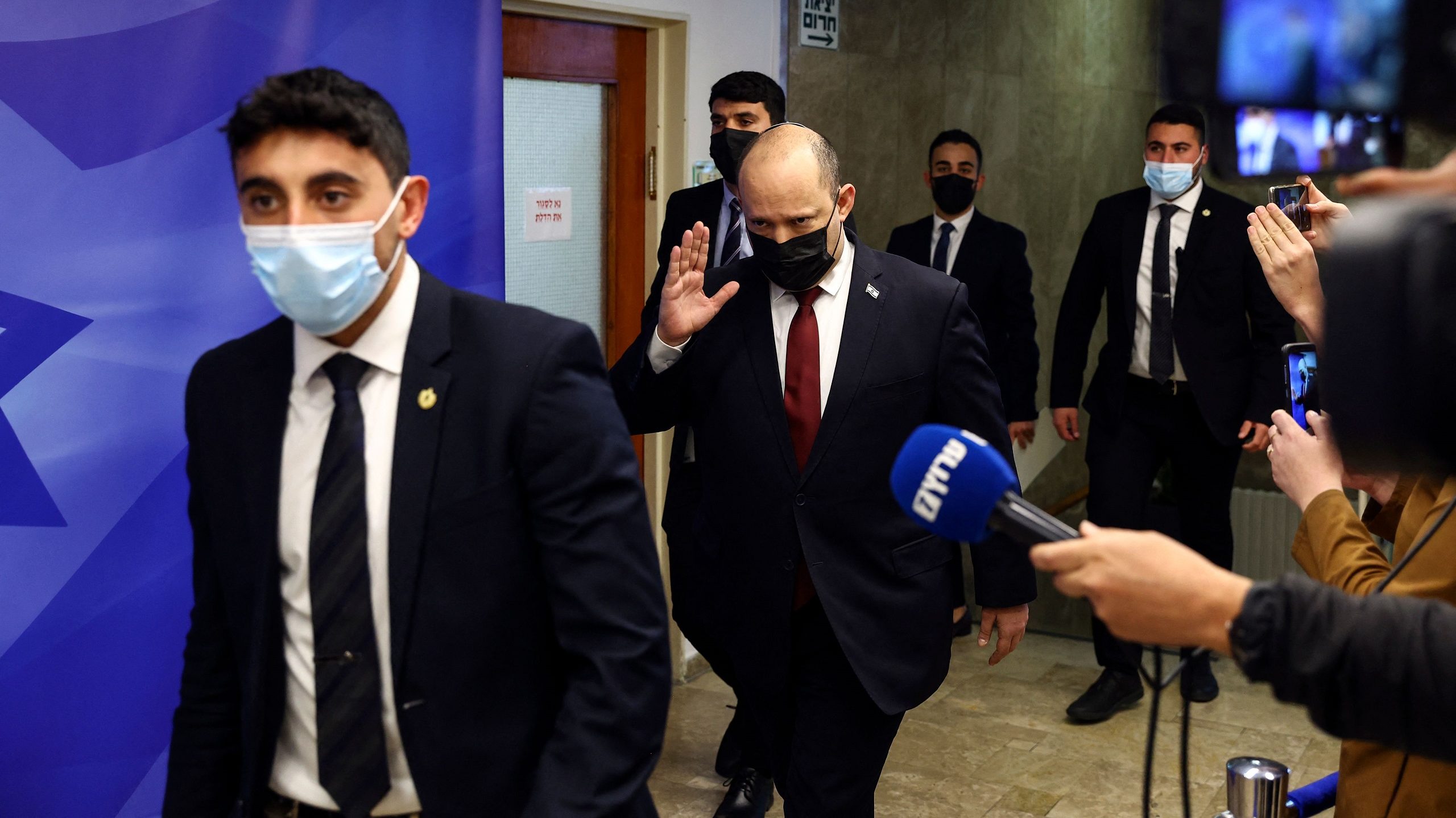Bennett: Israel Has a ‘Moral Responsibility’ To Mediate Between Russia, Ukraine
But chances of a meeting of minds ‘very slim,’ he says
Israeli Prime Minister Naftali Bennett surprised everyone when the Orthodox Jew traveled on a Saturday, to Moscow and Berlin, in what looks like an attempt to mediate between Russia and Ukraine.
In doing so, Bennett became the first world leader to meet face to face with President Vladimir Putin since Russia invaded Ukraine 11 days ago, less than a week after Israel joined in a UN vote to condemn Russia.
Bennett said at the start of Sunday’s regular weekly cabinet meeting in Jerusalem that his country has a moral obligation to try to bring an end to the human suffering in the war in Ukraine.
“I went to Moscow and Berlin to try to help bring a dialogue between all the sides, with the blessing and encouragement of all the players,” he said.
The prime minister added that “even if the chances are not great,” he sees it as Israel’s “moral responsibility to make every attempt,” because he has good contacts with both sides of the conflict.
Yaakov Amidror, a senior fellow at the Jerusalem Institute for Strategic Studies, and a former Israeli major general and national security adviser, told The Media Line the prime minister should be “commended” for his efforts, but it’s a tall order.
Religious Jews don’t conduct business on the Jewish Sabbath, but the Prime Minister’s Office said that this was an exception.
“According to the Jewish religion, it’s allowed to in extraordinary circumstances. If it would lead to saving lives of people, even a few, you can do it on Shabbat,” the Prime Minister’s Office said.
Before leaving for his overseas meetings, Bennett spoke by phone with French President Emmanuel Macron, who briefed him on his own discussions with Putin, the Élysée Palace said.
Give the gift of hope
We practice what we preach:
accurate, fearless journalism. But we can't do it alone.
- On the ground in Gaza, Syria, Israel, Egypt, Pakistan, and more
- Our program trained more than 100 journalists
- Calling out fake news and reporting real facts
- On the ground in Gaza, Syria, Israel, Egypt, Pakistan, and more
- Our program trained more than 100 journalists
- Calling out fake news and reporting real facts
Join us.
Support The Media Line. Save democracy.
Amidror said, “I think that the prime minister is trying to understand what is motivating Mr. Putin, because he cannot work between the two sides if he doesn’t understand what motivates him.”
The prime minister informed the White House and Kyiv of his plan.
In Kyiv, President Volodymyr Zelenskyy said he had expected Bennett to be more supportive of Ukraine when it was invaded by Russia.
Israeli Housing Minister Ze’ev Elkin, who was born in Kharkiv, Ukraine, then part of the Soviet Union, traveled with Bennett. Elkin in the past accompanied then-Prime Minister Benjamin Netanyahu as an interpreter in his talks with Putin.
Bennett held a three-hour meeting with Putin at the Kremlin in an attempt to broker a ceasefire. But the chance of reaching an agreement between the two sides is “very slim,” he acknowledged.
Zelenskyy has asked Israel to mediate in the conflict.
“The two sides have high demands, but mainly Mr. Putin making the chances of reaching an agreement very limited,” Amidror said.
At the UN General Assembly last Wednesday, Israel voted to condemn Russia, a move that many thought would upset Moscow and perhaps cause it to take steps to stop Israeli attacks in Syria.
Several issues were on the agenda during Bennett’s meetings, among them the large Jewish community in Ukraine.
Israelis say they are in a difficult position, as they want to side with their ally the US, while not upsetting Moscow.
Russia has a tacit agreement with Israel regarding Syria, where its forces there don’t obstruct Israel from targeting Iranian or Syrian forces.
“If the Russians were in a situation where they don’t think Israel can be an honest broker, they wouldn’t waste half a day speaking with the prime minister,” said Amidror.
The Kremlin said various “aspects of the situation in Ukraine” were discussed at the Putin-Bennett meeting.
Another important issue for Israel is the Iran nuclear deal. A renewed agreement may be inked soon according to reports, something that worries Israel.
“If you ask me if that was the center of their conversation and the focus, probably not,” Amidror said. “If he brings an agreement between the two sides, he becomes a hero.”
After Moscow, Bennett made a quick stop in Berlin for a meeting with Chancellor Olaf Scholz. The two men agreed that their objective was to “end the war in Ukraine as soon as possible,” the German chancellor’s spokesman said in a statement on Sunday.
Bennett spoke Sunday morning with Zelenskyy, in their third phone call in 24 hours.



